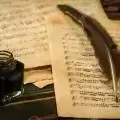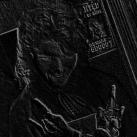Leaderboard
Popular Content
Showing content with the highest reputation on 12/10/2022 in all areas
-
Yes the title is parenthesis. It intends to present something unspeakable and speechless. I had other intentions at first but do not dare to speak it out. The piece is composed 10 years ago when I was a naive teen. The structure is simpler in a ternary structure. The recording is also recorded 2012 by myself in my school’s music room. You can hear the school alarm sound at the near end!! It’s also full of slips and wrong notes. But I cannot find or produce a better recording. This recording is so honest and pure. Even now I can play it much better in terms of technique, I can never produce that honesty anymore, so I will just retain it here. Without @Omicronrg9’s encouragement, I would not post the piece, thank you Daniel! Hope you enjoy the piece, and I welcome commentaries and comments on it. Thank you and have a nice day! P.S. I have provided the YT link here in case some one loves to visit my channel!1 point
-
This short work just sort of came to me. The form is fairly straight forward but follows a modified sonata form complete with recapitulation. I probably won't make many changes to it -except maybe expand the ending a tad (not too much though, as I'm quite happy with the overall structure of it). Hope everyone enjoys!1 point
-
Hi Henry First of all, I love this recording. If you were to someday release your music professionally, yes I would re-record it. But I love how you captured a moment in time that'll never be forgotten. I love the imperfections, the mistakes don't mean a thing. It's like when someone is giving a great speech, and they stutter a little; does it really matter? Or when actors purposely stutter and fumble their words a bit. They do it on purpose because it's more real, and that's how your recording felt to me. I love the bell at the end too, it was perfect timing haha. You do a really good job at developing your material. All of it makes sense since it stems from previously introduced themes. And speaking of themes, they're fantastic. I especially like the end of the A theme (bars 19-23). Sometimes I hear certain parts of a theme or a piece in general and wish the composer did more with it, but I think you gave us listeners just enough of it. Your piece made me think of Beethoven, sort of in texture, but also the way he treated material and saved moments of the theme to savor until the end (I'm thinking Appassionata mvt.1). The B theme is very well done too. Your music is drenched with emotion, something not everyone can achieve. I really like the parts where you added the trills in it too; you're quite the player, and this was 10 years ago! I really like the transition into bar 56, but I wouldn't have written that section that way. Half note = 176? I would have used quarter = 176 and halved all the note values, but that may just be a preference. Bringing back the B theme was nice with the triplets underneath, and then the dramatic section at bar 84 was very cool too. Very "symphonic" use of the piano there. All the development leading back to the introduction at bar 151 was great too, I like all your compositional technique. There were a few moments where you use low whole or half notes to transition to something, I'm not quite sure I'm a huge fan of it. It definitely works, but something just felt missing. For instance at bar 212, I would have done a slow rising figure with an accelerando or perhaps feathered beaming to mimic the left hand in bar 213 to get to that spot. I just think it would have been smoother, but like I said, what you did works (I'm just being nitpicky :P). My only real gripe with the piece is the coda section at bar 221. Yes I know you developed the chordal section you had previously, but to me it just came out of left field. I will say that this was my FAVORITE section though. Your melody is extraordinarily beautiful here, but to me we had several minutes of a Beethoven style, then all of a sudden we were getting Chopin. I loved the musicality of it, but I felt like it was tacked on instead of making sense as to where you were taking us. The ending is quite nice as well, and you should be proud of this one! Overall, very well done, Henry! You've got great composing chops, as well as piano skill. I'm glad you posted a live recording, even with it's faults. I'd rather hear you play it with a few minor mistakes then listen to a robotic midi rendition, we just don't get enough of that around here. I've posted a few older pieces here as well, but I'm very interested in what you're working on currently! It was nice to hear this, and it would be great when you post something recent so I can hear how you've developed as a composer. Wonderful job, and thanks so much for sharing!1 point
-
Firstly, I greatly admire your knowledge of contrapuntal writing, you have a incredible ear for polyphonic lines, specially the rhythm the multiple lines create together (getting this balance right is quite hard, I know very well). What I would certainly suggest to you in order to make these sound even better, is to let some voices breath, and be silent for some measures. After a cadence, and maybe during a sequence, drop out one of the voices, let only two voices go for a bit before introducing a reinstatement of the main subject. Use the driving force of the heavy 4 or 3 part texture as a climax device. Right now, even though you used different techniques to reach this goal, I feel there is too much intensity throughout it that ends up making the piece sound quite homogeneous. I really like your counterpoint, I hope I can eventually fugues like this one in the future. Thank you for posting, I am quite obsessed with counterpoint and it's great listening to people keeping the form alive.1 point
-
Who could have said I would start to write this kind of pieces? I am very fond of contemporary languages, of course. Now and then, I wrote a piece in what I thought it was a baroque style.... But I was wrong. Some weeks ago I began to study Music from its very beginning: cantus firmus, monophony, primitive polyphony, counterpoint, etc..... ALL of the music we know today comes from those times. Schemata is a big set of harmonic and melodic patterns flourishing in the galant style. However, many of them were born many many years before, and on the other hand, they were going to be present in music forever. So, now I find myself writing Minuets, or short pieces, just to learn these schemata. I love them and I love the endless ways to combine them, and now I really understand what baroque is. But most important, I know this stuff will have a principal role in my future projects whatever language they use. Two short minuet-trio with notated schemata.1 point
-
I love hearing your "study" pieces, as I feel I'm learning things I may have missed from listening to them. You're the best one here that gives very detailed scores with insight into what you're doing, as well as always providing the chords. I appreciate that, as I can read with ease glancing at the chords while I follow the melodies. Very well done, Luis1 point
-
One of my weaknesses is music like this. Reminds me of the guitar playing of Blind Melon (some of their acoustic songs, that is). Love this!1 point
-
Really soothing music! That's really difficult to play this great! You really enjoy your own composition and show it to us all!1 point
-
1 point
-
I love this sound and music. Also the score. I find it very difficult to write for guitar (much harder for classical).1 point
-
Just a couple observations.... I like the main subject of the fugue. There's a great deal of potential within it -and reviewing the score does give the impression that it is utilized to some minor effect. As most here have given sparkling reviews -which I read before viewing the score- I think I'll play devil's advocate. One thing with fugues that is very endearing to many is the inherent complexity of listening to multiple lines within a polyphonic texture. That said, I've noticed that this fugue breaks with the tradition of using a countersubject within fugal textures. There does seem to be an intervalic sequence that you appear to use -but you only seem to really use it a few times within its inverted and retrograde inverted formats. This works -but... it doesn't quite provide enough variety to make the right kind of tension you're going for with that subject. One thing I did find interesting is your use of variation towards the end of the fugue. This is definitely a more modern take on the form -and in a way reminds me of some of the late fugal writing of Beethoven (who also employed a fusion of fugue with theme and variations). All in all, I look forward to exploring more of your music. Thanks for sharing.1 point
-
Hi I enjoyed listening to your score sounds great! Not sure if I agree with it being one of your best, as my personal favorite is the one that came before this one1 point
-
As usual of your fugal work it is precise and accurate. Structurally it is tight since you use materials from the subject for your episodes. Is piano one of the instruments designed to play the piece? Bar 39, 42 and 43 would not be playable on piano except having pedals on it since the stretch is too big. If not, then it's ok. I find the A natural of tenor in the last bar quite strange in the context. I think A sharp will be better to clash with the Bs in the Soprano and Bass, as in many Bach's piece. What is the overall charcater of the piece? I'm curious about that.1 point
-
I have not listened to enough works from you to form an opinion on whether this work is better or worse than others I've heard in the past, but what I can say... The only thing that would make this better is a real interpretation. Fugues written with this care and effort are always and will most likely always be impressive to me; I could listen to them for days and never get bored. The more I listen to this work and others like this, the more they get appealing to me. Thank you for sharing this and other works of you of the same nature here, Pablo. Kind regards, Daniel–Ømicrón.1 point







